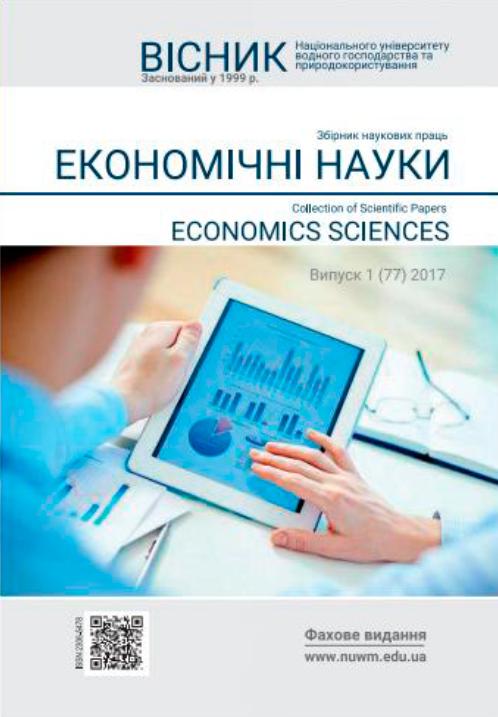ANALYSIS OF THE WORLD EXPERIENCE IN IMPROVING THE EFFICIENCY OF GLOBAL ENVIRONMENTAL MANAGEMENT
Keywords:
balanced use of nature, environmental management, social reporting, environmental sustainability, transparency.Abstract
Environmental management is an instrument of harmonizing the relations of society and nature in the context of global tendencies of human life ecologization, realization of practical actions on the way to environmental balanced management. The article aim is to analyze the main principles of global environmental management in the world and to substantiate the priority directions of its further development. The paper uses morphological and abstract logical methods of analysis and synthesis of scientific theories in ecological management, statistical method of forming the practical recommendations and substantiation of the proposed solutions. The scientific novelty of the research results is to substantiate the theoretical and practical prerequisites for increasing global management’ level, by establishing the ecological partnership, forming the mandatory non-financial reporting, systematization of environmental indicators etc. The practical value of the work is in using the studies’ results to implement the certain priorities and incentives of increasing the efficiency of environmental management’level, and ensure the improvement of the enterprise’s competitiveness.References
Веклич О. А. Эколого-экономические противоречия / О. А. Веклич. – К. : Наук. думка, 1991. – 144 с.
Гринів Л. С. Екологічно збалансована економіка: проблеми теорії / Л. С. Гринів. – Львів : НТШ, 1997. – 240 с.
Rothkopf D (February 27, 2012) Inside Power, Inc.: Taking stock of big business vs. government, Foreign Policy. Available at www.foreignpolicy.com/articles/2012/02/27/inside_big_power_inc. Accessed April 29, 2014.
Ernst & Young LLP (EY) and GreenBiz Group (2013) Six Growing Trends in Corporate Sustainability (EY Publications, London).
Delmas M. Blass V.D. (2010) Measuring corporate environmental performance: The trade-offs of sustainability ratings. Bus Strategy Environ 19(4):245–260.
McKinsey and Company (2014) Global Survey Results: Sustainability’s Strategic Worth (McKinsey Publications, New York). 7. WBCSD and IUCN (2014) Biodiversity for Business: A Guide to Using Knowledge Products Delivered Through IUCN. Available at www.wbcsdpublications.org/viewReport.php?repID=517. Accessed July 23, 2014.
State University and University of Arkansas (2013) About the Consortium. Available at www.sustainabilityconsortium.org/whowe-are/. Accessed April 10, 2014.
Principles for Responsible Investment (PRI) Association (2013) PRI Fact Sheet. Available at www.unpri.org/news/prifactsheet/.Accessed March 29, 2014.
Tomo O. (2013) Intangible Asset Market Value. Available at www.oceantomo.com/productsandservices/investments/intangiblemarket-value. Accessed March 30, 2014.
Gordon K. The Risky Business Project (2014) Risky Business: The Economic Risks of Climate Change in the United States. Available at riskybusiness.org/uploads/files/RiskyBusiness_Report_ WEB_7_22_14. pdf. Accessed August 8, 2014.

